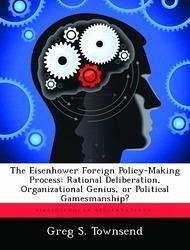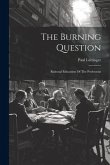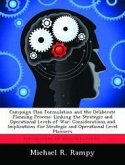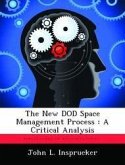President Eisenhower, like all U.S. Presidents, wrestled with the limitations placed on the executive branch of government by the U.S. Constitution; and this structural constant served as an impetus for Eisenhower to seek coordination in his foreign policy via organizational change. This paper will analyze the development of National Security Council (NSC) Policy Paper 162/2, Basic National Security, to determine the impact of Eisenhower's organizational approach to national policy making. Graham Allison's models of governmental behavior, as articulated in his book Essence of Decision, will serve as the framework for analysis. Allison proposed three models of governmental behavior which may be used to explain the Eisenhower administration's foreign policy decision-making process. Governmental behavior as a rational actor, involves the selection of a course of action among alternatives by a unitary decision-maker, after a valuation of costs and benefits. The organizational behavior model attributes governmental decisions to the outputs of standard operating procedures rather than rational analysis. And the governmental politics model explains behavior as the resultant of bargaining, influence, and ultimately power. Eisenhower's reliance on organizational processes, as evidenced by the Policy Planning Board and Operations Coordination Board, support the organizational behavior model.
Hinweis: Dieser Artikel kann nur an eine deutsche Lieferadresse ausgeliefert werden.
Hinweis: Dieser Artikel kann nur an eine deutsche Lieferadresse ausgeliefert werden.








